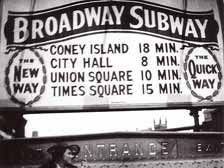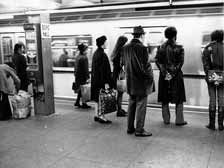I repeat the words carefully, trying to match the timing and intonation of a cathedral full of people who clearly know the routine, have said these words before, and could probably recite them in their sleep. I am the stranger, I am the interloper, the lapsed Protestant in a Catholic church, trying to mimic the rituals well enough to blend into the background. The rituals are familiar, yet different. The prayers are similar, but they leave off the endings, and I continue alone, speaking into the reflective silence that sits over the congregants. I am feeling out of sync, out of place, and alone.
It strikes me that we are all ultimately alone in our lives. It is not an original thought, nor is this the first time I’ve had it. We can never know what goes on in another’s mind, and we can never fully share any experience, not completely. We can rely on others to buoy our spirits, but it is always up to us to make of our own lives what we will. Happiness is an internal factor, not external. Growth is always from within.
This month’s issue begins with Elsie Sze’s piece Belgrade: city of monuments, which explores a few of the Serbian city’s monuments from an outsider’s perspective. Jaya Padmanabhan explores the intersection of art and intellect in Idol nerd. Kate Hassett shows us a summer passing in a few moments in Shoots and leaves, and Patricia Hawkenson shares a few summer reflections in her collection of poems titled Hooks, knives, and slivers of smoke. Finally, Sarah Seltzer takes a look at two books about Pat Tillman in her review One soldier, many stories.
While we will all face death alone, and while all of our triumphs and despairs along the way will be uniquely ours and ours alone, it would be foolish to then stipulate that there is no need for others. Joy might be a flame that burns from within, but others may be the catalyst, the spark that ignites the blaze of happiness. However weak we may be as individuals, together we will always be strong.
Aaron Richner I am a writer/editor turned web developer. I've served as both Editor-in-chief and Technical Developer of In The Fray Magazine over the past 5 years. I am gainfully employed, writing, editing and developing on the web for a small private college in Duluth, MN. I enjoy both silence and heavy metal, John Milton and Stephen King, sunrise and sunset. Like all of us, I contain multitudes.
- Follow us on Twitter: @inthefray
- Comment on stories or like us on Facebook
- Subscribe to our free email newsletter
- Send us your writing, photography, or artwork
- Republish our Creative Commons-licensed content








